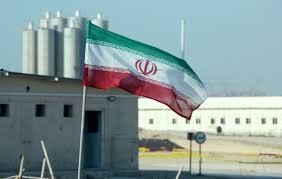The possibility of a change in Iran’s nuclear doctrine

TEHRAN- Hours before the Israeli "response" sending a couple of drones that were intercepted in Isfahan, the commander in charge of protecting the country's nuclear facilities, Ahmad Haqtalab, sent a message to the Zionist Entity stating that if it intended to attack any of the country's nuclear installations, this action could force a change in Iran's nuclear strategic doctrine.
In this regard, it should be noted that for the Islamic Republic, the nuclear issue is constrained by the fatwa -an Islamic decree- issued in 2003 by Ayatollah Ali Khamenei, the current Leader of the country. This fatwa clearly prohibits the production and use of nuclear and biological weapons. Several representatives of the Islamic Republic have made it clear that if the country has not developed nuclear weapons, it is not due to a lack of technical and scientific competence, but rather because of the explicit prohibition of the fatwa. Its importance is such that in 2021, the then Minister of Intelligence, Mahmoud Alavi, faced harsh criticism from renowned Islamic jurists for suggesting that the country should possess nuclear weapons to defend itself if cornered. From a legal-political perspective, therefore, the nuclear issue is limited to a civilian nuclear program. This does not mean that there is not a growing public opinion that believes the country should possess nuclear weapons as a measure of protection against Western threats. But as long as the fatwa is in effect, the debate is framed within its parameters.
Haqtalab's statements, while staying within the official doctrine expressed by the Leader's fatwa, are important for two reasons. Firstly, because they come from the mouth of a high-ranking military official, and secondly, because they demonstrate a level of public discourse that many people considered absent in the Islamic Republic.
As mentioned earlier, in the days following Operation "True Promise," various types of responses were considered by the Zionist Entity, including the possibility of attacking one of the Islamic Republic's nuclear facilities. In that scenario, the country could have accelerated uranium enrichment and thus come close to the possibility of actual and effective nuclearization.
It is worth remembering that although Iran has reduced its levels of uranium enrichment (as confirmed by the International Atomic Energy Agency), the country still has significant reserves of radioactive material (estimates suggest that the Islamic Republic possesses close to 5,500 kilograms of uranium).
All of the above, along with the new phase characterized by active deterrence in which Iran finds itself, could mean that the United States, Israel, and to a lesser extent the European Union, pay even more attention to the Islamic Republic's nuclear program with the aim of preventing possible nuclearization.
Several Iranian analysts believe that the current nuclear strategy may be modified depending on how the authorities responsible for the nuclear dossier react to three issues:
- Firstly, the attack on the Iranian consulate in Damascus can be seen as a clear manifestation that the Zionist Entity has decided to cross all red lines, and there is no guarantee that it will not do so again. It is precisely this view that would explain the change in the Islamic Republic's political-military strategy in its policy toward Israel: from the traditional doctrine of strategic patience to the new doctrine represented by active deterrence.
- Secondly, Iran's response to the attack in Damascus, the well-known Operation "True Promise," may increase the perception, for the United States and Israel, that Iran has become an even greater "threat," and therefore, greater pressure will be deemed necessary to be applied to the Islamic Republic.
- Lastly, although the Israeli response was a failure in military terms, the attempted attack in the province of Isfahan, where one of the country's most important nuclear plants is located, could lead Iranian political and military leaders to consider increasing their deterrence capabilities to prevent future attacks against their nuclear facilities.
It cannot be forgotten that the current phase of the conflict, characterized by a much more assertive attitude from Iran in responding to Zionist provocations, may be a lasting phase. In this regard, the Islamic Republic will have to increase its deterrence capabilities to avoid becoming the target of Israeli attacks. One of the possibilities Iran has on the table in case it needs to enhance its deterrence capacity is to resume uranium enrichment, which would ensure the continuation of avoiding an open conflict in the region while sending a clear message to Israel and the United States about Iran's unwillingness to submit. Some suggest that Haqtalab's words should be interpreted in this context.
The possibility of a change in Iran's nuclear doctrine would entail a nuclear reorganization in the region that must also be taken into account. In this sense, both Saudi Arabia and Turkey could develop their nuclear capabilities, and the Zionist Entity could publicly acknowledge what is an open secret: the existence of its nuclear program.
Taking into account all of the above, the Iranian nuclear program, which for the moment remains within the civilian limits imposed by Ayatollah Khamenei's fatwa issued in 2003, must be analyzed within a context that considers both the internal and external particularities of the current geopolitical situation. Any change in it should be analyzed based on the discursive principles upon which the Islamic Republic is founded, especially those that guarantee Iran's independence and autonomy.
This was evident in the recent negotiations with the West to try to revive the nuclear agreement that was unilaterally dissolved by the United States. During those negotiations, the Islamic Republic, through its negotiating team, sought a fair agreement that would guarantee independence from the West in setting its own terms.
Leave a Comment